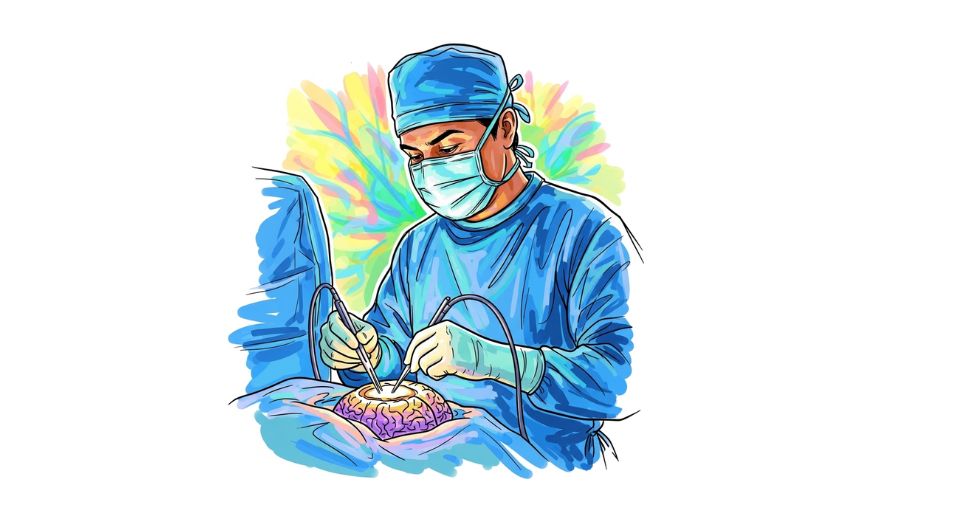
Jun 17, 2025

The latest Metastat Insight report indicates the existing trend and momentum of the Global Neurosurgery Market, and within it there is a comprehensive analysis of how the technological development in the different fields is affecting its future. Neurosurgery, the specialty practice of diseases of the brain, spine, and nervous system, has experienced visible improvements in technique, technology, and institutional practice. These developments have impacted the procedures' performance, devices used, and mode of patient care being delivered in hospital and clinic specialist departments. Given the accuracy and coordination needed by neurosurgical interventions, there has been a clear trend of refining methods and creating an environment where intricate surgical interventions are performed with increased confidence. Hospitals, research centers, and surgery units have experienced a shift in the handling of neurosurgical cases.
The shift is not only evident in the operating room but also in pre-surgical diagnosis and post-operative treatment. Imaging, surgical navigation, and intraoperative monitoring are gradually becoming integral to decision-making. The attempt to make procedures predictable and less traumatic has imparted a new beat to the work of neurosurgical teams. This processing and technological improvement has established a platform through which clinicians are able to manage inherent problems that occur during procedures without jeopardizing safety. There is a palpable interest in the use of specialized tools specifically designed for neurosurgical environments. These vary from the delicate cutting tools to the integrated navigation systems, all of which are tailored with the complexities of neurological anatomy in consideration.
In relation to more general classes of surgery, neurosurgery puts tremendous strain on the margin for error. In response to this, innovation in instrumentation has gone towards maximizing control, reducing trauma, and maximizing recovery. A balance is sought between assertiveness of surgery and safety of the patient. These advancements are not limited to city hospitals; hospitals in developing nations are similarly finding the means of making high-quality neurosurgery more accessible to their populations, adding further impetus to the Global Neurosurgery Market. Neurosurgical education and training have come to be specialized in their focus as well. Practitioners are subjected more and more to simulation-based training and virtual models that enable greater preparation prior to working on live cases. These tools are additional avenues for learning methods previously mastered through direct surgical mentoring alone.
New surgeons entering the profession are entering with a greater arsenal of learning tools, both in terms of concrete and virtual materials. This shift towards new instructional approaches is one aspect of a broader strategy of investment in quality and consistency throughout all aspects of neurosurgical practice. At the same time, though, the interaction between treatment and data has made a unique place for itself in the Global Neurosurgery Market. Internet websites have become the center for patient data handling, monitoring surgery performance, and correlating studies. With information perception built into clinical choice, surgeons now have a better ability to forecast complications, optimize procedure planning, and quantify healing patterns over time. While the real procedure of surgery remains predominantly manual, preparation and assessment phases have become digitized in kind, operating behind the scenes to alter the use of information prior to and after treatment.
The range of neurosurgical operations still includes a wide variety of conditions. From tumor and trauma to degenerative disease and functional disorder, the need for case-specific solutions has compelled surgeons and device manufacturers to collaborate to develop case-specific solutions. Case-specific treatment plans have become a reality since more intensively collaborative multidisciplinary teams deal with each other, making sure that the solution offered to every patient is representative of clinical need as well as more global concerns of health. The preoperative plan now is more dictated by a combined sense of neurological imaging, psychological preparedness, and rehabilitation potential. Public and private health authorities have more and more allocated more priority to neurosurgery as part of their service plans.
The priority has been met through specialized wards for neurosurgery, specialist facilities, and more funds for related equipment. As more hospitals become aware of how important it is to provide well-organized neurosurgical care, they are investing more in resources that prioritize national health goals and global surgery standards. This is a major consensus that neurosurgery is not only an extremely technical field but also a key foundation of the chain of medical care, particularly in areas where there is an increase in neurological disease. Systems of patient advocacy and support have also come into increasing prominence with the clinical advances. Survivors, relatives, and care-givers are now a vocal constituency that anticipates and demands openness, education, and empathy through the course of treatment. Their presence has brought about changes in the mode of delivery of care, with institutions placing more focus on counseling, patient education, and adaptive care settings. The patient voice, formerly at the margin, is now regarded as an asset to co-creation of the neurosurgical experience.
Research contained in the Global Neurosurgery Market Report by Metastat Insight is an indication of the way in which several layers clinical, technological, institutional, and societal are co-creating the tempo and the nature of development in this domain. Neurosurgery moves forward by nuance and sensitivity instead of sweeping revolution. The evolution one has witnessed in technique, technology, education, and models of care is a message that the future is one where the market continues to provide specialty, high-stakes care with better outcomes. With the health care environment around it fostering these complexities, the Global Neurosurgery Market is an industry characterized by focused change with centered focus, collaboration, and patient-centered intent.
Drop us an email at:
Call us on:
+1 214 613 5758
+91 73850 57479